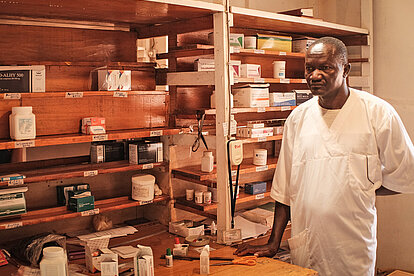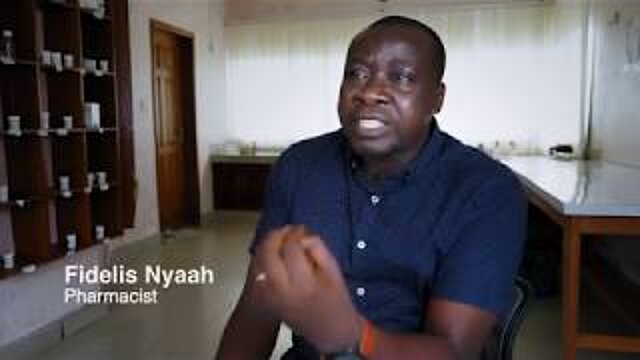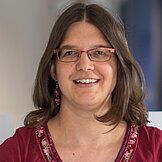Access to medicines
Better supply of essential medicines
![[Translate to English:] Apotheke in Malawi [Translate to English:] Eine gut sortierte Apotheke in Malawi](/fileadmin/_processed_/8/a/csm_Malawi_Apotheke_Isabel_Reusch_18a5630f37.jpg)
Most diseases are treatable today. Nevertheless, millions of people die because essential medicines are still not available in many regions. People often cannot afford the medicines that are available. In addition, there is a lack of pharmaceutical specialists in many health facilities. Furthermore, the number of substandard and falisified medicines is increasing, threatening people's health and lives.
The DIFÄM Office for Pharmaceutical Development Cooperation therefore advocates for a comprehensive, permanent and area-wide supply of effective medicines and the establishment of pharmaceutical structures on site. For example, we support the establishment of central pharmacies, the training of pharmaceutical specialists and the equipment of these facilities with mobile laboratories so that the quality of the medicines can be controlled. Emergency medicines supply in conflict zones is also part of the pharmaceutical work of DIFÄM in its role as an officially recognised "Central Procurement Agency for Medicines".
Building pharmaceutical competence

Medicines are indispensable in any health system. Whether it is a university hospital or a village clinic - no health facility is able to act without essential medicines. But it is still difficult to ensure the procurement of medicines right into remote regions. And in order to run a pharmacy, basic pharmaceutical knowledge is very important. Making the necessary medications available everywhere and imparting knowledge about their correct use are focal points of DIFÄM's pharmaceutical work. Together with local partner organisations, DIFÄM educates staff in pharmacies and hospitals on how to procure, dose, store and check the quality of medicines and products, and ensures that medicines and products are always available in the church central pharmacies, cheaply and in good quality. If possible, these are purchased from local production.
The correct choice of medicines is important in this context. Thousands of medicines are prescribed, bought and used worldwide, although their side effects and costs are too high compared to alternative products, and in many regions there are only limited financial resources available. The World Health Organisation (WHO) therefore provides a list of essential medicines, which currently includes about 400 medicines. But not all medicines are useful everywhere - in a village clinic without medical staff or laboratory, 20 to 30 medicines are sufficient, whereas in larger hospitals more and different medicines are required. These need to be procured and made available.

Quality assurance of medicines
Ensuring the quality of medicines is important. In many countries in Africa, falisified medicines, medicines of inferior quality or completely without appropriate active ingredients are circulating. Treatment with inferior medicines can lead to resistance to antibiotics, for example, and in the worst case to death. But such medicines can only be identified through laboratory testing by trained professionals.
For the quality assurance of medicines, DIFÄM equips the facilities of its partner organisations with mobile minilabs and trains the staff in how to use them. So far, the minilab network has been able to detect some substandard and falisified medicines. Cases are reported to the WHO and local authorities, who follow up and recall the concerned products. In the event of transregional cases, the WHO publishes international alerts.
International pharmaceutical lobby and networking activities
The international commitment of DIFÄM to improve the structural and political framework is an important part of its work. Difäm is very active in the Ecumenical Pharmaceutical Network (EPN) based in Kenya. There, over 130 organisations and individuals from more than 30 countries work together in order to improve pharmaceutical care for poor and disadvantaged people.








